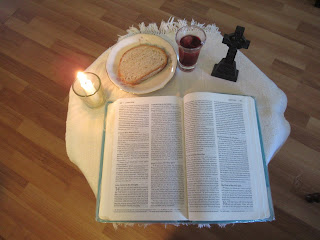Today's blog will highlight some of the achievements of our members from July to Sept 2021
Awards and Recommendations
OWBF Writing Competition
Congratulations to the winners or the inaugural writing competition
And a big thank you to Helen Bishop who donated her prize towards the next Omega Writers Book Fair (most likely in May 2022).
CALEB Prize Finalists
The winners will be announced at the on 9 October 2021 as part of the Omega Writers Zoom conference (see below for details).
Events
Omega Writers Book Fair (Brisbane)
After all the planning and high hopes, the 2021 Omega Writers Book Fair (Brisbane) went ahead on the 31 July 2021 even as the announcement of a lockdown for South-East Queensland was being made.
This year the OWBF had a smaller number of author tables - with sixteen authors with works ranging for memoirs, biography, devotional theology, diversity and difference, to works of fantasy, science fiction, historical romance and crime fiction (written by a paramedic). The workshop by Anne Hamilton and Panel on Marekting and Promotion for Authors were both well attended. Scavenger hunts and door prizes were given out and the winners of the inaugural OWBF Writing Competition were announced. All it all, it was a good time of networking, interaction and, indeed, sales.
CWD members present included Anne Hamilton, Judy Rogers, Ruth Bonetti, Nola Passmore, Naomi Eccles-Smith, Lynne Stringer, Jeanette O'Hagan, Hazel Barker (who won the published short story prize), David Bennett, Sally Eberhardt, Raelene Purtill, Rebekah Robinson, Ray & Sue Woodrow and Marion Kilchester
Read more about the 2021 OWBF here.
Cooparoo Presbyterian Book Fair
Some weeks later, on 28 August 2021, the Cooparoo Presyterian Church held their inaugural Book Fair with a number of stall holders, including CWD members David Bennett, Lynne Stringer, Ruth Bonetti, Jeanette O'Hagan, Jeanette Grant-Thomson, Hazel Barker and Rebekah Robinson. It was fantastic seeing a local church get behind Christian writers not only in holding the event but in in making purchases from the wide variety of books present.
Inaugural Logan Writers Festival
Other News
A charming look at one man’s post-war dream to build a mansion in the Brisbane suburb of St Lucia, which was in the 1950s mostly open kangaroo paddocks. Most astonishing for a private home in the 1950s, it had an elevator, which made Bonetti something of a celebrity at her local primary school as “the granddaughter of the man who had a lift in his house” she writes, with warmth and pride.
Who says that Indie published books can’t attract mainstream press reviews? With features in QMag Courier Mail and Toowoomba Chronicle, this makes a trifecta.
The take-out memo: Be persistent. Be confident and determined.
Coming up - Don't Miss Them
The Omega Writers Conference is now an online Retreat
THE 2021 OMEGA CONFERENCE IS AN ONLINE RETREAT
DATE: 8-9 OCTOBER
VENUE: YOUR PLACE, ON ZOOM
COST FOR THE SATURDAY PROGRAM: Omega Members: $50 Non-Members: $70
CALEB AWARDS PROGRAM IS FREE
The Conference will feature:
Collett Smart (Psychologist)
Nicole Partridge – Creative Writing
Genre and Breakout Groups
Two Panels – Pathways to Publication, Pathways to Promotion,
And the CALEB Awards Dinner
South Australia Chapter
Rendered Realms at Supanova and Oz ComicCon
Rendered Realms (Lynne Stringer, Jeanette O'Hagan and Adele Jones) plan to be at SupaNova Brisbane November 6-7, 2021 and Oz ComicCon Brisbane in December 11 - 12. 2021, both at Brisbane Convention & exhibition centre. Please drop in and see them at these fantastic events.




















